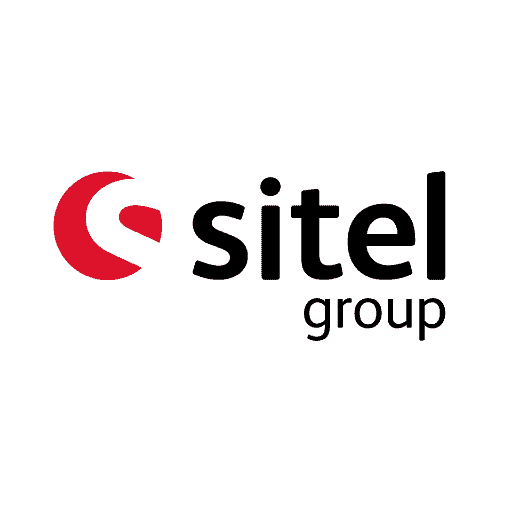Blog
Sitel Group’s Acquisition of SYKES Makes a Big Statement – What Does It Mean for the CXM Industry?

With one of the largest acquisitions in the contact center outsourcing market in recent years, Sitel Group is poised to become a powerhouse with its acquisition of SYKES Enterprises, Inc. This union will likely set off greater investment in customer experience management services (CXM) and more industry consolidation. Read on to find out what this big deal will mean.
Giant scope gets attention
The contact center outsourcing market is huge, about 90 billion dollars in annual revenues, and the industry is seeing more attention and growth than ever. So, the announcement of the agreement of Sitel Group acquiring all of SYKES’ outstanding shares in a transaction valued at approximately $2.2 billion is another in a growing list of investments in this space, albeit a large one.
Over the last two to three years, most acquisitions by large contact center providers have focused on bringing new capabilities and technologies to an existing footprint, whereas the Sitel Group / SYKES deal calls out gaining additional global presence as one of the main reasons for the acquisition. We have not seen something of this scale for a few years, probably not since the Concentrix acquisition of Convergys.
Ripple effects of the acquisition
This acquisition forms a $4 billion customer experience management services (CXM) organization with over 150,000 agents, making Sitel Group one of the three largest organizations in the industry alongside Teleperformance and Concentrix. In this blog, we’ll explore what this acquisition means for Sitel Group, its existing and potential customers, as well as the CXM industry as a whole.
Here are a few of the key impacts we expect:
- The pace of change within Sitel Group: Existing customers of both companies should be mindful as to the speed and effectiveness of the integration and changes to the senior leadership team. Moving too quickly on an integration of this type can cause delivery capability issues, but moving too slowly can lead to service degradation as people are distracted by impending changes and, thereby, lose focus on immediate priorities. Potential clients will also want a clear view of available offerings, service delivery models, and innovation roadmaps
- Sitel Group scaling up: Sitel Group’s acquisition of SYKES opens up a plethora of new delivery locations, including in Australia, EMEA, and Central America. However, we can expect to see a consolidation of sites and locations over time, especially where both have strong presences. The global footprint will also reduce as locations begin to provide service in the same languages. We also expect that Sitel Group’s considerable work on improving profitability in recent years will benefit SYKES’ business, whose current operating margins are on the lower side in the industry.
In terms of vertical expertise, Sitel Group and SYKES have complementary strengths, with Sitel Group bringing presence in the retail, insurance, and public sector spaces and SYKES bringing strength in the technology and healthcare industries.
- Client volume drop: While Sitel Group and SYKES share complementary capabilities and mindsets, one natural overlap is that they have many of the same clients, making it probable that they will lose some client volume. Clients will not want to aggregate their contact center outsourcing into one place, they will naturally want to diversify
- Delays in fully leveraging new capabilities: Many CXM service providers are developing digital CXM capabilities as the industry moves at pace away from traditional “people in seats” models and focuses on delivering better customer experiences through digital interactions to drive better business outcomes. SYKES has a strong focus on digital marketing and automation capabilities which benefits Sitel Group, which has leveraged partnerships in those areas
While Sitel Group’s acquisition of SYKES will bring additional and much-needed digital capabilities to the new combined business, a company the size of the new organization cannot deliver change and adjust to new offerings and skills overnight. It may take some time to fully deliver new digital capabilities at scale.
Increased investments in the contact center industry
As the contact center industry aims to better understand the customer and improve customer experience, we’re seeing many investments in the market.
Service providers across the board are investing in technologies and skillsets to become more digital and get ahead of the curve to offer better customer experiences. They are finding organizations more willing to spend money to improve customer service, an area where in the past, they treated simply as a cost base that needed to be reduced, but are now recognizing its potential strategic and topline business impact. Smaller service providers are taking advantage of their agility and are quickly adapting to a digital-first CXM business, and larger providers are having to work hard to keep pace with the rate of digital adoption.
Watch for more deals in the future
Expect to see more public and non-public deals happening. With the size of this market and everyone working towards digital transformation, a trend that has further accelerated due to vulnerabilities exposed by COVID-19, the contact center outsourcing industry is really ripe for investment.
These deals will result in a consolidation in the marketplace but with bigger market growth. Penetration of contact center outsourcing could increase from roughly 30 percent to upwards of 35 percent in the next few years – resulting in a faster rate of growth than we’ve seen in the past decade.
It will not only be due to big service providers getting even larger. Smaller service providers will need to rapidly articulate their differentiation to remain relevant in a crowded marketplace, such as in a process area or industry domain; otherwise, they run the risk of being in a race towards the bottom.
You can also attend our LinkedIn Live session, Who is Leading Customer Experience Management (CXM) Services in Europe?, to learn the results of our recently completed PEAK Matrix® assessment showcasing our latest CXM research in the EMEA region.